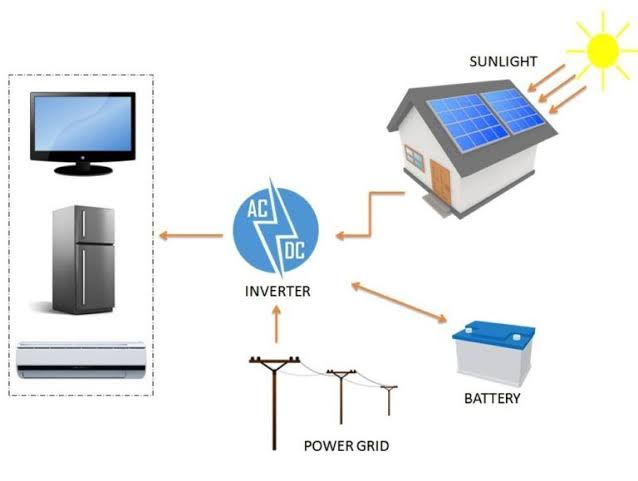Solar Startups and Businesses In Burkina Faso To Get Up To $200k From UN-backed Fund
A fund backed by the United Nations and the government of Luxembourg is helping companies and startups to provide small solar PV systems and innovative cooking stoves in Burkina Faso. The Fond des Energies Renouvelables pour la Résilience du Burkina Faso (FERR-BF) has offered to provide technical and financial assistance to companies that are interested in supplying small-scale PV systems and innovative cooking stoves in Burkina Faso. It did not provide technical specifications for the solar PV products.
Here Is All You Need To Know
- The fund, which is managed by the United Nations Capital Development Fund (UNCDF) and financed by the Luxembourg government, will provide $50,000 to $200,000 to companies that submit winning project bids. The FERR-BF said that preference will be given to companies offering consumer finance or proposing pay-as-you-go (PAYG) systems and other innovative digital payment platforms.
- While the FERR-BF’s call for projects is open to startups, all participating companies must be operational and registered in Burkina Faso to submit bids. In addition, winning bidders must be willing to move forward on their ideas in the Burkinabe market from the third quarter, the UNCDF said in an online statement.

Read also: Group Launches $2.2 Million Fertilizer Financing Scheme in Nigeria
Startup support
- The fund will offer technical assistance to startups via incubators. For more established companies, it will offer a combination of grants, loans, and technical support. Payment platforms and other financial service providers will receive similar support.
- Applicants will be judged via a competitive process and are allowed to submit multiple proposals, as long as each idea is “distinctive,” the UNCDF said. The deadline to submit applications is April 17, 2020, said the FERR-BF, which aims to support economic resiliency and the ability of countries to respond to climate change, with a particular focus on vulnerable segments of society, including refugees, women, young people, independent farmers and small businesses.
- Burkina Faso is heavily dependent on fossil fuels but is determined to achieve universal access to electricity by 2025, from a current electrification rate of approximately 20%, according to International Finance Corp.
- The impoverished, landlocked country had installed just 62 MW of solar by the end of 2018, according to the International Renewable Energy Association (IRENA). However, momentum for solar PV is slowly building. In early February, French PV developer Urbasolar — part of the Swiss Axpo Group — began building a 30 MW solar project in the country’s Boucle du Mouhoun region. Upon completion, all electricity generated by the installation will be sold at $0.08/kWh to national utility Sonabel. The project is part of a 155 MW solar pipeline that the government wants to build with the help of independent electricity producers.
- In December, the African Development Bank (AfDB) agreed to lend roughly €49 million to back the development of 208 MW of solar capacity in the country. The landlocked nation’s €137 million Yeleen project — which comprises four 52 MW solar arrays — will be implemented under the AfDB’s Desert to Power initiative in collaboration with Sonabel, the European Union, and Agence Française de Développement.
- Burkina Faso is also increasingly looking at energy storage technologies to support renewables development. In October, Total Eren, mining operator Nordgold and Africa Energy Management Platform, a Mauritius-based renewables developer, agreed to jointly build a 13 MW solar+storage project.
- The country’s growing focus on storage also got a shot in the arm just a few weeks ago, when the IFC signed an agreement with Burkina Faso’s Ministry of Energy to determine how private investment in energy storage can support solar deployment while improving grid stability.
Charles Rapulu Udoh

Charles Rapulu Udoh is a Lagos-based lawyer who has advised startups across Africa on issues such as startup funding (Venture Capital, Debt financing, private equity, angel investing etc), taxation, strategies, etc. He also has special focus on the protection of business or brands’ intellectual property rights ( such as trademark, patent or design) across Africa and other foreign jurisdictions.
He is well versed on issues of ESG (sustainability), media and entertainment law, corporate finance and governance.
He is also an award-winning writer.
He could be contacted at udohrapulu@gmail.com

